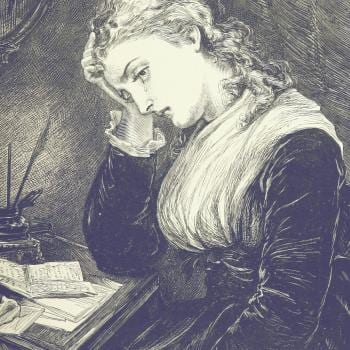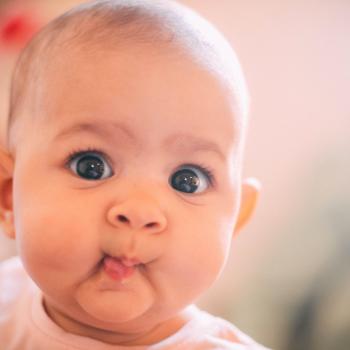Well, I’ve trolled the internet in vain for a whole ten minutes looking for anything that’s not coronavirus and it all culminated in this—Go! Run! Hide! It “might” be the end of the world, or it might not, of course we don’t know. All the panic and mayhem, incidentally, did come to my local Aldi where everyone rushed in a bought all the loo paper and Clorox wipes but Not the soap, which seemed weird to me, but what do I know.
This put me in mind, as you might expect, of the Good Place and that podcast I linked yesterday. It’s really interesting and well done and, if you have time, I’m sure you would enjoy it. It’s a bit of an exploration into how views of heaven have changed over time, especially in movies. Like, in the 50s and 60s, God was all-knowing, and depictions of heaven were solid and comforting. But then gradually we ended up with movies like Dogma, and now, in programs like The Good Place, heaven is “impeachable” as it were. The judge—honestly, my favorite character, so funny—isn’t really God, and could know everything but doesn’t bother. Judgment is all about mechanization and accounting. I mean, I haven’t seen the fourth season, so I don’t know how it’s going to turn out, but one thing that the podcast said, and which must be some kind of a spoiler, is that the underlying philosophical belief is that death is necessary in order to even understand what the good life should be.
It is the reality of death, posits the philosopher who most deeply influenced the creators of the show, that forces the question, that allows humanity to make philosophical and morally good choices. I shouldn’t say any more on that score because I haven’t read the book and haven’t seen the end of the program.
But, it did occur to me that The Good Place is really very like Lewis’ imaginings in The Great Divorce, of the outer margins of heaven when the bus comes trundling up from hell, and all the ghostly hell-bound creatures get out and creep around, moaning over the sharpness of the grass. Any number of them might have pontificated, plaintively, to the real glorious heavenly humans who have come to try to argue them into staying, that “death” is really essential for understanding the good life and morality. I mean, I can’t remember the book perfectly, but I feel like the Anglican Bishop character might have said just that.
I mean, as a Christian, I would say, in some sense, yes, you are going to die. So, you should think about that. But, as we can easily see, and indeed the show admits, the reality of death does not make people “good.” It doesn’t make them think and choose good things. It doesn’t make them prioritize anything. It could do that, I suppose, but it doesn’t. Look at coronavirus sweeping across the world and killing at least as many as some illnesses do. There is not a widespread moral questioning coming right alongside. No, it’s a combination of mediocre memes and panic buying of loo paper.
No, rather death is humanity’s fundamental orientation. We are trapped by it. We know it’s coming but, instead of looking out and above ourselves, seeking some cosmic help, some answer to this terrible problem, we look down at the ground, at the very dust from which we are wrought.
The thing about heaven, for Christians, is not that you need death all the time to throw you back on your choices, but that you go “further up and further in.” There is not a constant circling back to the self and one’s own choices, but going ever closer to Life, for eternity. This is what makes the moral choice really a choice—to see that there is an ultimate goodness that overtakes the narrowness of our vision. Our choices can be caught up in that great perfect goodness that goes on forever. Indeed, life can begin now, the journey towards that great and perfect country can start this moment.
This reality could still the sense of panic, could quiet the desperate heart. Sure, at some point we will each step over that threshold into the life we cannot now see, though certainly there are tantalizing visions, and that step might be scary or even painful, but…well, it isn’t death, it is life forever.
And now, if you will excuse me, I must go to the store to find loo paper, because we aren’t hoarding it, we need it today.













